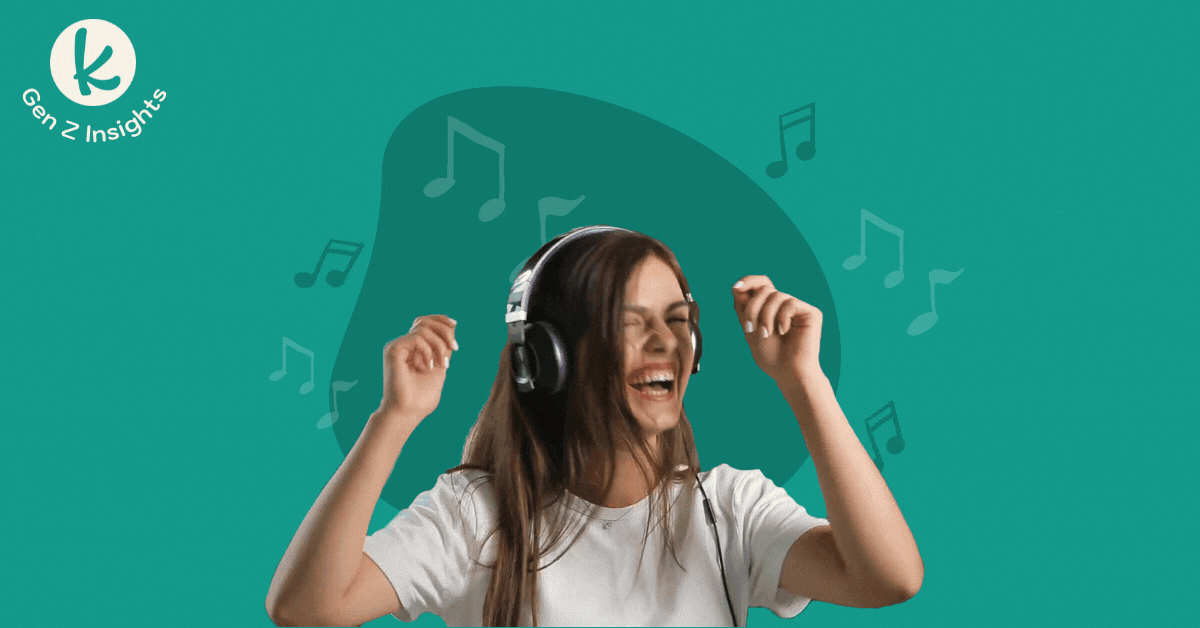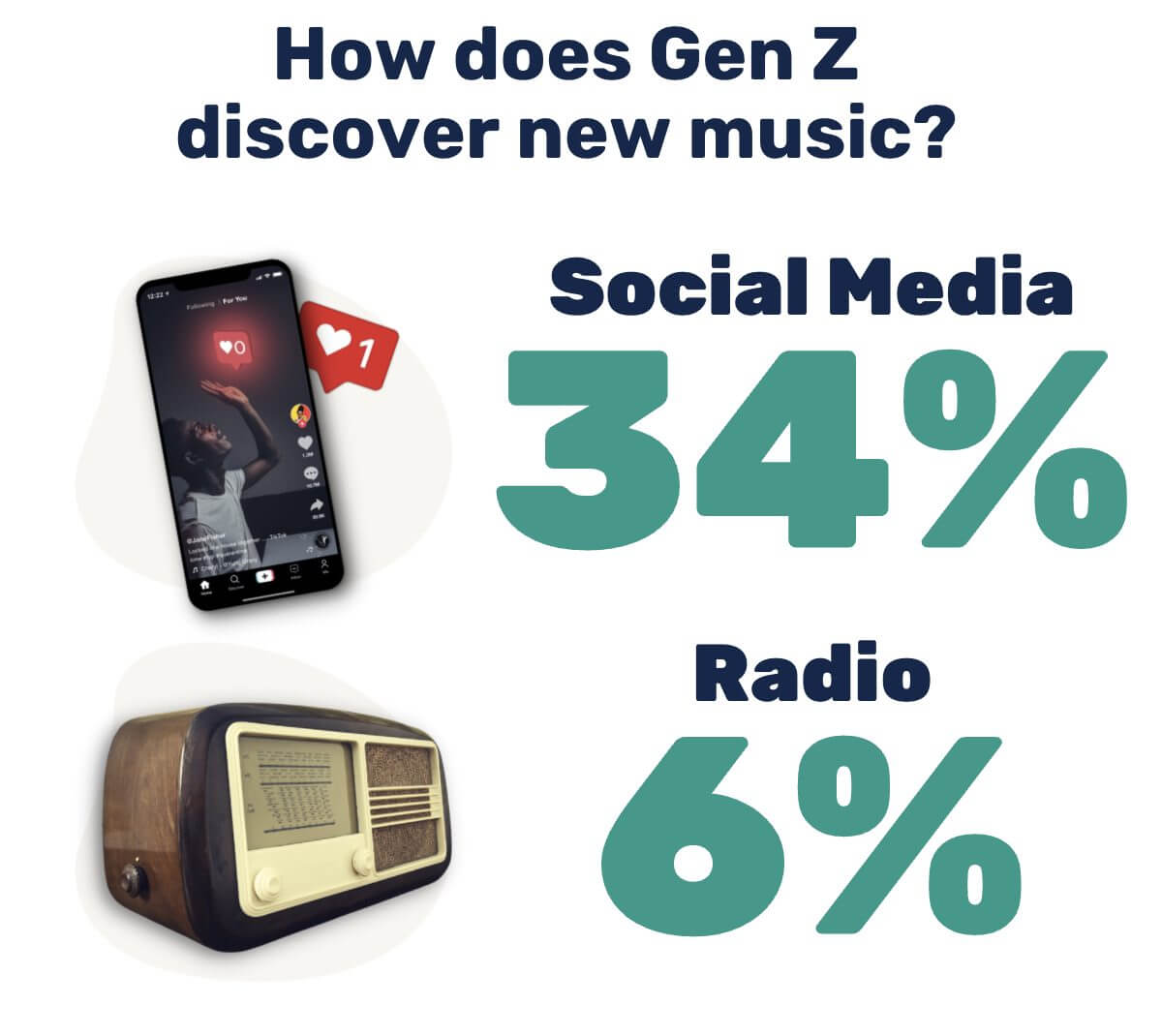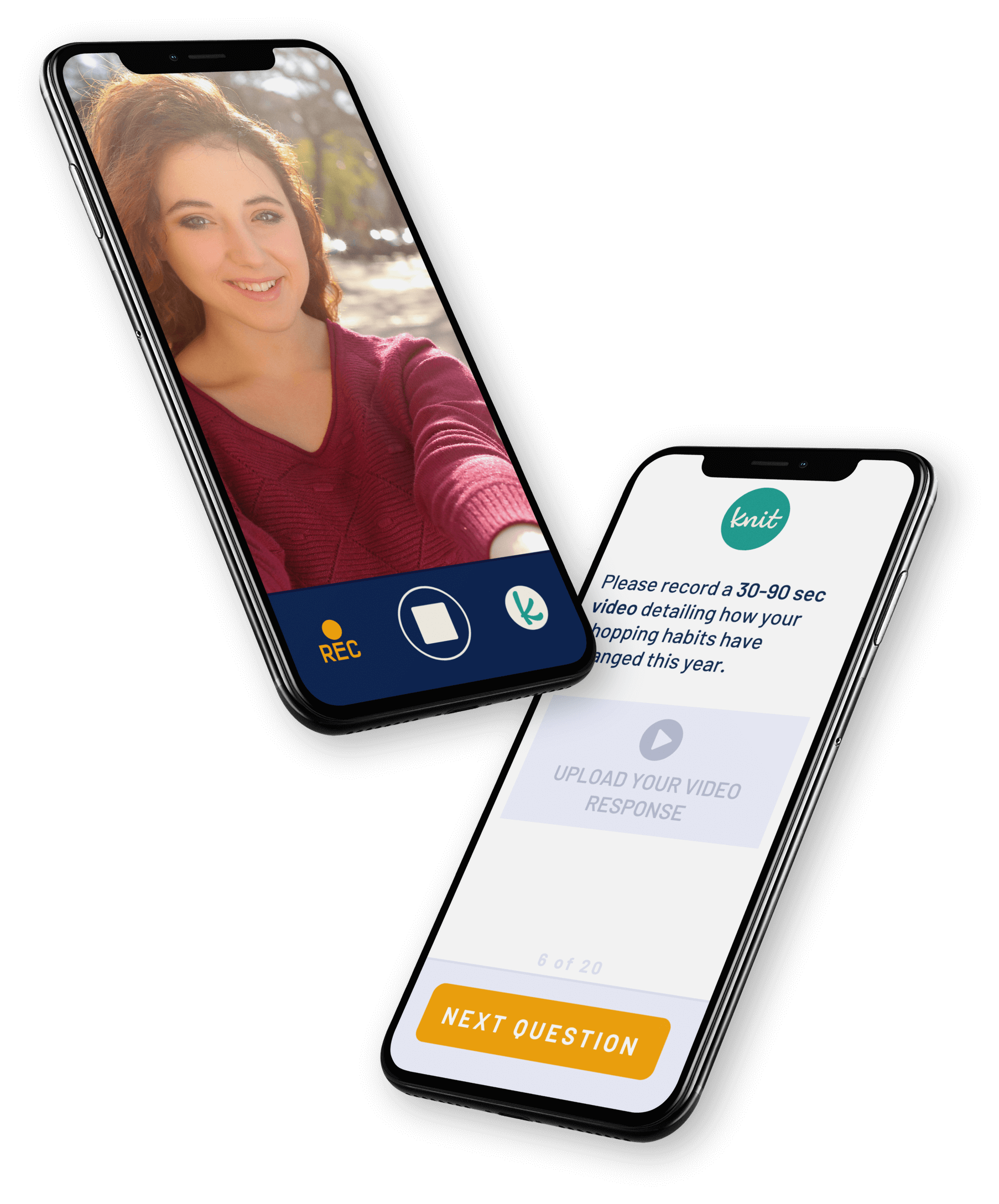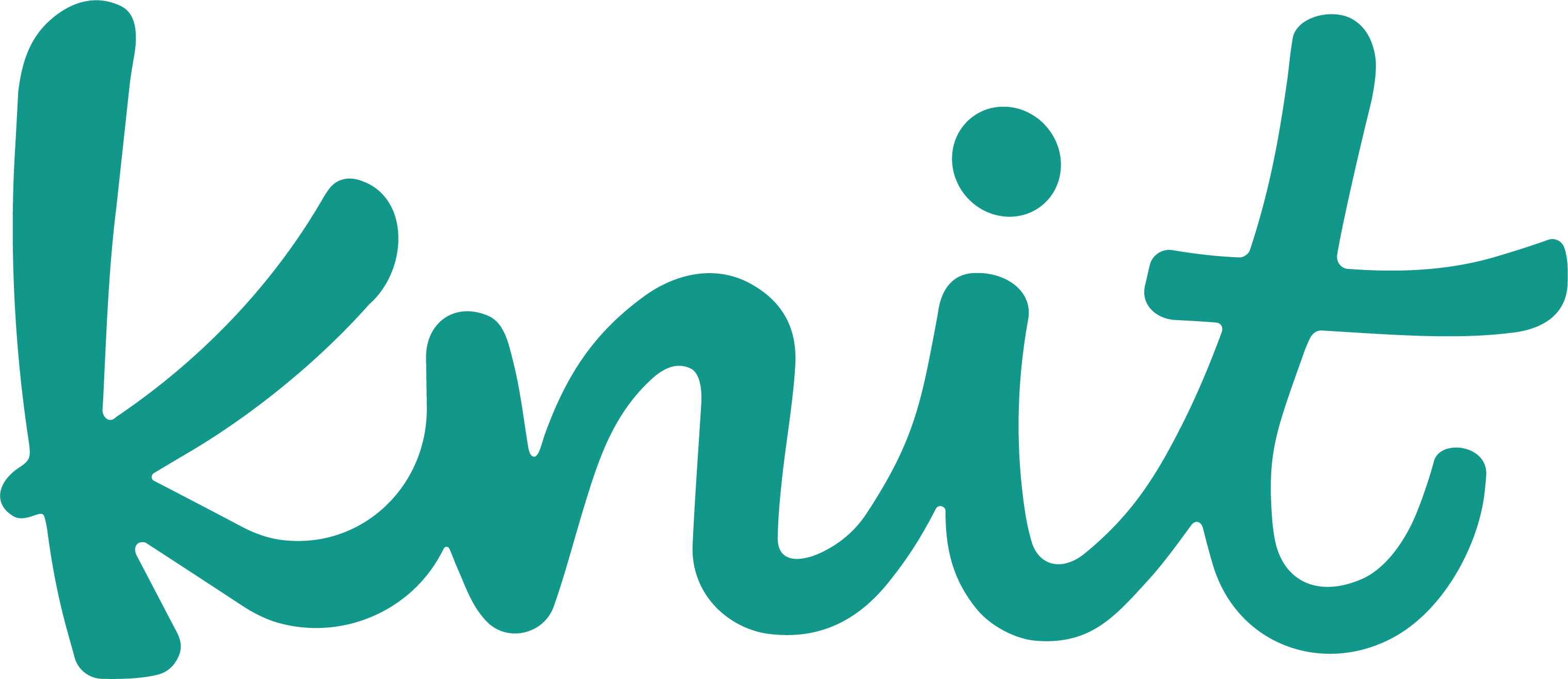
Gen Z Music Deep Dive 2021:
The Platforms, Playlists & Pressings They Love
Ah, music. It’s the tamer of savage beasts, the backing track to all the best showers, and the primary thing that The Carpenters and Cardi B have in common. Whether you need a bop, banger, or ballad, music delivers. Last week, we gave you a sneak peek into Gen Z music listening habits and preferences, and promised you a deeper dive this week. Well, call us Lupe Fiasco and consider this post proof that we’ll keep it 100 1,000 10,000:
Millennials vs. Gen Z music listening habits
Without a little context, this would be a really short post: Gen Z likes music and they like to stream it. Also, water is wet. But you don’t come here for phoned-in copypasta, and this is a deep dive, so let’s get contextual!
We have no interest in pitting Gen Z against their Millennial counterparts, and no matter how long “ipod shuffle hair clips” and “side part vs. middle part” surface as trending in your newsfeed, neither do they. But to understand how drastically and rapidly Gen Z is driving changes in music consumption and production, it helps to compare the two.
Perhaps the most substantial — and least surprising — way that Gen Z’s listening habits differ from older generations is how they’re tuning in. Spoiler: they’re not.
Research conducted by Attest revealed that while 37% of the Millennials they polled said they listen to the radio daily, only 19% of Gen Z’s said the same. That doesn’t just represent a pretty massive cross-generational dip, at 18 percentage points it’s also the most pronounced. Compared to the four percentage points standing between Gen X’s daily radio consumption and Millennials’, it’s practically subterranean.
Listen to Music on the Radio Daily:
- Gen Z 19%
- Millennial 37%
Attest found a similar gap between Gen Z and Millennials when they asked about daily streamed music: 60% of Gen Z respondents said they streamed music every day, compared to 43% of Millennials. This time, however, there was a much more even spread in the increased adoption of streaming music services across all generations (Gen X: 29%, Boomers: 13%).
Stream Music Daily:
- Gen Z 60%
- Millennial 43%
When it comes to daily listening, not just any streaming platform will do, however. Attest’s research supports our own in this respect: our survey respondents overwhelmingly named Spotify as their go-to platform (72%) and so did Attest’s (64%).
Gen Z’s least favorite platform? Amazon Music. It came in dead last with just 13% of Gen Z respondents naming it as their primary streaming platform.
Worth noting is that Gen Z’s top two favorite music streaming platforms — Spotify and YouTube — deliver more than just music into earholes. Both have a visual element, from lyrics to full music videos to seamlessly looping clips. The audio visualizer has come a long way, and Gen Z gravitates toward it.
Where Gen Z likes to listen:
- Spotify 64%
- Youtube 35%
- Apple Music 33%
- SoundCloud 27%
- Amazon Music 13%
One thing that Millennials and Gen Z have in common is why they seek out audio experiences, including music. According to Spotify’s 2021 Culture Next Report, 73% of respondents in the combined age group said they use audio (music and podcasts) to “cope with anxiety and stress”.
Gen Z delights in discovery
We all know the feeling: the surge of pride that comes from introducing someone to their new favorite artist, song, or album. You know — liking something “before it’s cool”. We’re talking, of course, about discovery. And Gen Z is no different.
Spotify’s 2018 version of their annual report managed to quantify this feeling, with 72% of respondents indicating that discovering new content “boosted their happiness.” So where are Zs finding their new faves?
Social media, mostly.
According to Spotify’s 2021 research, 34% of Gen Z says they first discover new music when they hear it on social media, followed by a recommendation by a friend (12%) or streaming app (11%). A scant 6% credit the radio as their primary source of discovery.

All of this tracks with what we’ve known about the sources that Gen Z trust most when they’re making consumption decisions. They’re going straight to the source (artist social media accounts and online fan communities), putting stock in the experiences of the people they interact with every day (recommendations from friends) and algorithms that analyze their current preferences and serve up something new (streaming app recommendations).
Gen Z music is going genre-less
If you want further proof of how heavily Gen Z relies upon the online communities they frequent for a sense of belonging and their next heavy repeats, you don’t need to look much further than Spotify’s declaration that Dream SMP — a phenomenally popular role-playing server on Minecraft that’s popular with Gen Z — was a genre.
This came as a surprise to a lot of Spotify users, including hardcore fans of Dream SMP (the server) and fans of DreamSMP (the genre) whose first time encountering those eight letters in that order was in their Wrapped lists.
It’s also illustrative of Z’s eschewal of labels. Sure, they like their genres, but they’re just as likely to call themselves fans of glitchcore as they are of cloud rap, kawaii metal, or hyperpop. In fact, 97% of female-identifying respondents to a 2018 Sweety High survey reported that they listened to five different genres on a regular basis.
The diminished importance of genre labels is evident in the music Gen Z listens to, as well. Consider the following:
country music is evolving pic.twitter.com/BEZIw3TE8l
— MONTERO 🦋 (@LilNasX) December 3, 2018
Now, consider that this post went up three years ago. In the before times. Since it went up:
• Bri Malandro coined the term “Yeehaw Agenda”, which became its own online community and movement
• Old Town Road charted on Billboard Hot 100 Country and Hip Hop/R&B simultaneously, was removed from the former — sparking a controversy — and went on to break records when it held the number one spot on Billboard’s Top 10 for 19 straight weeks
• Lil Nas X moved on from country trap to release the hip hop electropop hit Montero (Call Me By Your Name) sparking another controversy
• Water continued to be wet
While everyone else was bickering about genres, Lil Nas X’s generation collectively shrugged its shoulders, because there really isn’t a whole lot about a Black, queer, TikTok-famous artist producing a megapopular country music song that strikes them as odd. Who cares what you call it? If it’s good, turn it up.
Then there are the playlists. We found that Gen Z vastly prefers playlists to albums, 89% to 45%. It speaks to their preference for genre-switching. Gen Z playlists can serve practically any purpose.
From attempting to bottle a specific feeling…
…to capturing the mood and aesthetic of a particular place.
Gen Z rewinds and throws back — and buys vinyl
There’s been talk over the past few years of an impending digital media renaissance, and when it comes to music, it may finally be here. At least, where vinyl records are concerned. Vinyl has been slowly creeping back for years now, but in 2021, sales exploded. In the first half of the year alone, RIAA reported a 94% increase in vinyl sales.
And Gen Z is decidedly on board. According to MRC Data’s 2021 US Music 360 Report, as a group, they were more likely than the average user to have purchased vinyl in 2021. Gen Z even outpaced Millennials — long credited with the steadily increasing readoption of the medium — at the record store, with 15% of them said they purchased at least one vinyl album in 2021, compared to 11% of Millennials who did the same.
In a way, the vinyl album is the digital playlist’s polar opposite. So what could be driving the change? Sure there’s the whole Gen Z nostalgia thing, but there’s another factor at play here. Gen Z has consistently indicated that they think that quality content is worth paying for.
They’re also more likely than the previous generation to follow and support individual content creators, according to recent research conducted by Vice Media and Ontario Creates. Selling a vinyl pressing directly to fans represents a larger profit for creators themselves than digital streaming contracts. Retail exclusive editions, special pressings on colored vinyl, and limited supply might appeal to Gen Z for any number of reasons.
They acknowledge and cater to omnichannel shopping, experiential retail, for one thing. For another, they offer Gen Z music listeners something similar to what NFTs do: collectible potential and the feeling of owning something unique that connects them to something meaningful.
The music a generation loves (and how they listen to it!) can tell you a lot about a person. It can even tell you a lot about a group of people and a moment in time. That includes Generation Z in 2021 and beyond. But it can’t tell you everything. To get even more Gen Z insights tailored to your brands needs and goals, get in touch. We’ll hook you up.

Subscribe for industry insights delivered weekly.
Get all the Knit News you need with access to our free newsletter to stay a step ahead on the latest trends driving the industries of tomorrow.

